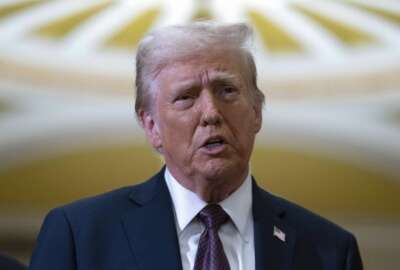Washington and Hollywood: A new sequel
Sometimes federal regulators get pulled into pointless investigations.
If you could describe the long-running relationship between the federal government and Hollywood in modern therapeutic language, you’d say, “It’s complicated.” The latest sequel concerns a suitor with even more money than the film industry.
Remember the national angst when the Japanese group Mitsubishi Estate purchased Rockefeller Center? That was in 1989, a couple of years after the collection of deco buildings had been named a national historic landmark. The transaction appeared to symbolize the ascendancy of the Japanese economy and the decline of the United States’. That sales might have diminished American prestige in the heart of mid-town, but few thought it was a security risk.
Rock Center has been sold twice since then, and Japan’s economy never did take over.
Now China and its economy worry the United States. The latest: Chinese billionaire Jack Ma just inked a partnership that includes a monitory stake with Amblin Partners, the Steven Spielberg hit-churning movie operation. That’s sparked a group of House members, from both parties, to suggest to the Government Accountability Office that the Committee on Foreign Investment in the United States to look into the national security implications of the deal.
National security? Movies?
CFIUS, a unit of the Treasury Department, is not really an agency but rather interagency group. It dates back to the early days of the Cold War. It reviews investments made by foreigners in U.S. assets, to make sure they don’t affect national security. To make an unlikely illustration, CFIUS would get involved if cronies of Vladimir Putin wanted to acquire something like Raytheon. CFIUS reviews are detailed, complicated and controlled by a series of legislative reforms and executive orders going back 40 years. If the CFIUS doesn’t like an investment, the president can veto it.
CFIUS activity rises and falls depending on the investment and political climate. After 9/11, many investments by Arab countries fell under CFIUS review. Very few actually end up blocked.
Bloomberg reported back in 2013 that CFIUS has forced would-be investors in U.S. assets to have security and personnel screening plans.
Another real estate transaction, the 2015 acquisition of the Waldorf Astoria by the Angbang Insurance Group of China, also raised eyebrows. CFIUS approved the deal, which surprised many. Angbang plans to gut and rebuild the famous hotel, which will close for three years starting in 2017. But because the Waldorf (where french fries already cost 12 bucks) traditionally housed United States U.N. delegations and other governments, people, including me, wondered whether the Chinese would embed the infrastructure behind the hotel room walls with listening devices.
I’m trying to figure out why movies would have anything to do with national security. Most movies depict fiction. One editorial suggested Spielberg wants more access to distribute his movies in China, which restricts this sort of thing. Perhaps the Chinese government will censor U.S. films or influence what they show and how they show it. That’s Spielberg’s and his associates’ business. But it’s not a national security issue.
Perhaps the Congressmen are worried Amblin will become a source of propaganda. I’ve got news for them. Most movies have elements of propaganda already.
If you don’t like it, stick with indies. No one is ever forced to go spend $10 or whatever it is nowadays to watch the umpteenth Star Wars episode.
As John Culberson (R-Texas) points out, the level of Chinese investment in Hollywood does seem curious when added up. He wants the Justice Department to perform a Foreign Agents Registration Act investigation. I suspect the Chinese have both commercial and propaganda designs, but that works both ways.
Copyright © 2025 Federal News Network. All rights reserved. This website is not intended for users located within the European Economic Area.
Tom Temin is host of the Federal Drive and has been providing insight on federal technology and management issues for more than 30 years.
Follow @tteminWFED







